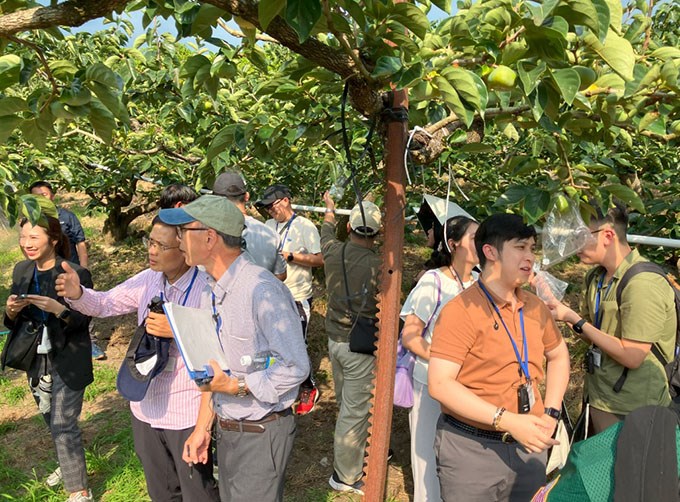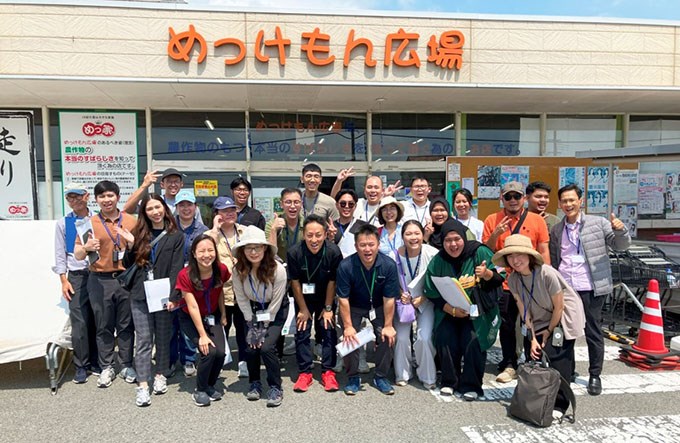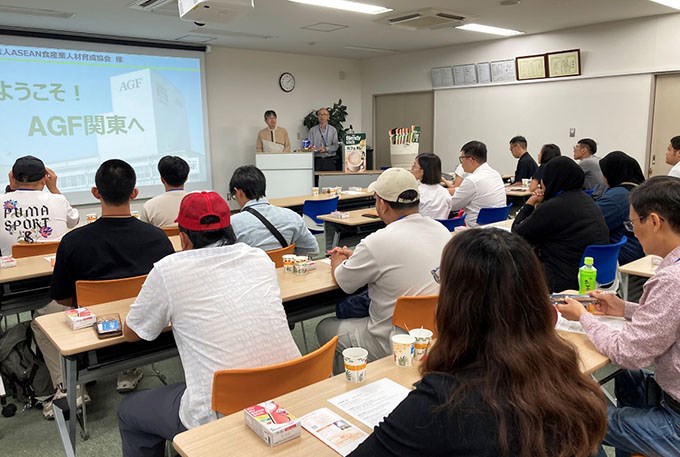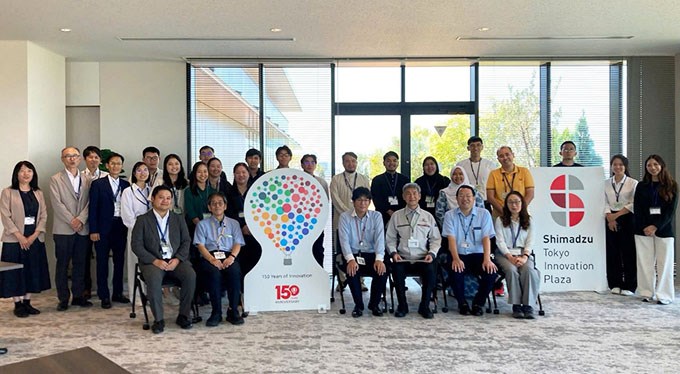A practical, meaningful Field Study Program on the Food Value Chain was organized in Japan under the Project “Human Resource Development in Agriculture and Food-Related Sectors through Partnership with Universities in ASEAN Region, Phase 4 (HRD Project)”, with the participation from five universities from five countries, namely Vietnam, Singapore, Thailand, Brunei, and Malaysia. The delegation from the Faculty of Food Science and Technology, Vietnam National University of Agriculture (VNUA), participated enthusiastically and achieved very positive results.
The study program was arranged at a series of reputable agricultural and food enterprises in Osaka, Kyoto, and Tokyo, Japan. It has provided an opportunity to explore advanced models, modern technologies, and sustainable development mindsets from leading companies and research institutions in the Land of the Rising Sun.
During our on-the-job training at the agricultural supermarkets of the JA Lake Shiga and Kinosato cooperatives, we learned that one of the core solutions to promote the development of cooperatives is to secure stable market output. Cooperatives should proactively establish supermarkets to sell their own agricultural products, even open restaurants and eateries so that customers and visitors could try, experience and buy products. Furthermore, cooperatives should be organized on a larger scale, which can include thousands of members. This helps members support each other and increased the resources of the cooperative. These can be applied in Vietnam to further promote the development of cooperatives in Vietnam.

Field study at the farm of Kinosato Cooperative in Japan

A visit to the Kinosato Cooperative's agricultural supermarket
We were particularly impressed by the high-tech innovations in food manufacturing. For example, Mayekawa’s “Super Fresh Zero” refrigeration technology maintains extremely low temperatures in cold storage while keeping air humidity above 90%, preserving the freshness and quality of fruits and vegetables and extending shelf life by two to three times compared to conventional methods. Yoshinoya company demonstrates a highly professional, efficient processing line for fresh vegetables and beef, with stringent hygiene controls throughout. AGF Kanto Coffee Company showcases a diverse product range and effective marketing strategies that have expanded its reach not only domestically but also into international markets.

On-site training at AGF Kanto Coffee company in Japan
Distribution hubs such as the Narita Wholesale Market, the AEON malls, and Yusen Logistics operate on a massive, professional scale and stand out for their cleanliness, orderly layout, and scientific zoning. These attributes ensure smooth operations, enhance food safety, and the overall value of the food value chain. In particular, the AEON Mall model integrates multiple functions - “all in one” - not just a retail location but also an entertainment center, event venue, and sports facility.
At the Shimadzu Tokyo Innovation Plaza, we gained an even deeper understanding of the critical role that science and technology played in driving the sustainable development of the food value chain.

On-site training at Shimadzu Corporation’s Innovation Plaza in Tokyo, Japan
Another standout element is the Japanese workforce’s professional, dedicated, and courteous attitude. Such qualities foster credibility, quality assurance, and trust among both domestic and international partners.
We would like to extend our sincere gratitude to the program organizers, the experts from Japanese food enterprises, and the HRD Project for organizing a meaningful training course. We would do our best to apply the knowledge and experience gained in Japan to contribute to the development and expansion of food value chains in Vietnam.
Faculty of Food Science and Technology, VNUA